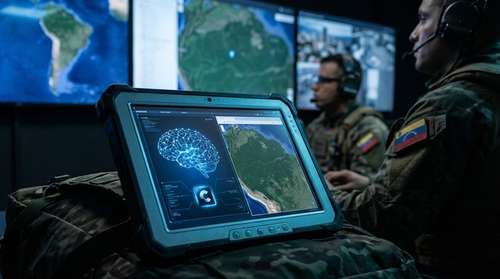Artificial intelligence and automation are seeping into our daily working lives and female office workers are among those whose jobs are being taken over by machines.
Analysts have found the jobs facing the fastest automation include retail workers, bookkeepers and receptionists
Pearson's research looks at roles that are likely to be automated as technology advances.
Historically, much of the conversation when it comes to automation has been about robots taking over factory jobs, or even replacing retail assistants in the form of self-service check-outs at supermarkets.
Pearson's data also shows the less obvious pictures of automation encroaching into office environments, including for medical receptionists, accountants and personal assistants.
"Some of the key (jobs) that are most impacted by technology are things like receptionists, waiters, bank workers, retail sales assistants," according to Sandya Baratha Raj, director of data science at Pearson.
"And the interesting thing is a lot of these roles are more likely to be female dominated.
"Females are more likely to be negatively impacted by technology than males."
Take the job of a translator. A decade ago, many of those at national service Polaron were doing work manually for clients by listening or reading to languages and translating this out into text and voice.
Now there's a plethora of software including voice recognition that does the basics of their job.
"I think a lot of translators will become proofreaders," Polaron's projector coordinator Tristan Priolo explained.
"It'll be checkers, as opposed to translators."
Seventy per cent of Polaron's translators are women. Some are older women who are less tech-savvy and able to keep up with the industry's fast-moving technological advances.
"Unfortunately, a lot of our (translators) they are falling behind because they're not able to keep up or they haven't chosen to keep up," Ms Priolo said.
"The industry is competitive. And they can't necessarily earn as much money from proofreading as they could have with translation.
"But that being said – they could get a lot more done."
Pearson's analysis found that by 2032 more than 10 per cent of the work currently done by translators will be automated, and many will be in female-dominated industries.
Workers worry they have not been properly trained up for digital advances
New survey results also shared by industry body CPA Australia, a local professional association for accountants, found that one in two workers don't believe they're being trained up for digital advances.
Pearson's data found that 13 per cent of an accountant's current work will have been automated by 2027.
Bookkeeping work will be even higher, at 20 per cent automated within those five years.
That's as artificial intelligence and software is deployed to do everything from statutory declarations through to complex receiverships.
Even the people who are making the software that's being deployed are noticing it's changing their work.
CPA Australia believes automation isn't actually a threat to job numbers. Its take is that the trend is freeing up accountants to do more complex work.
Pearson's data scientist Sandya Baratha Raj also urges people in industries that are being automated to upskill.
"It's about being able to be proactive and understanding how we can use (our data) to make sure that people have the right skills for the future," she said.




